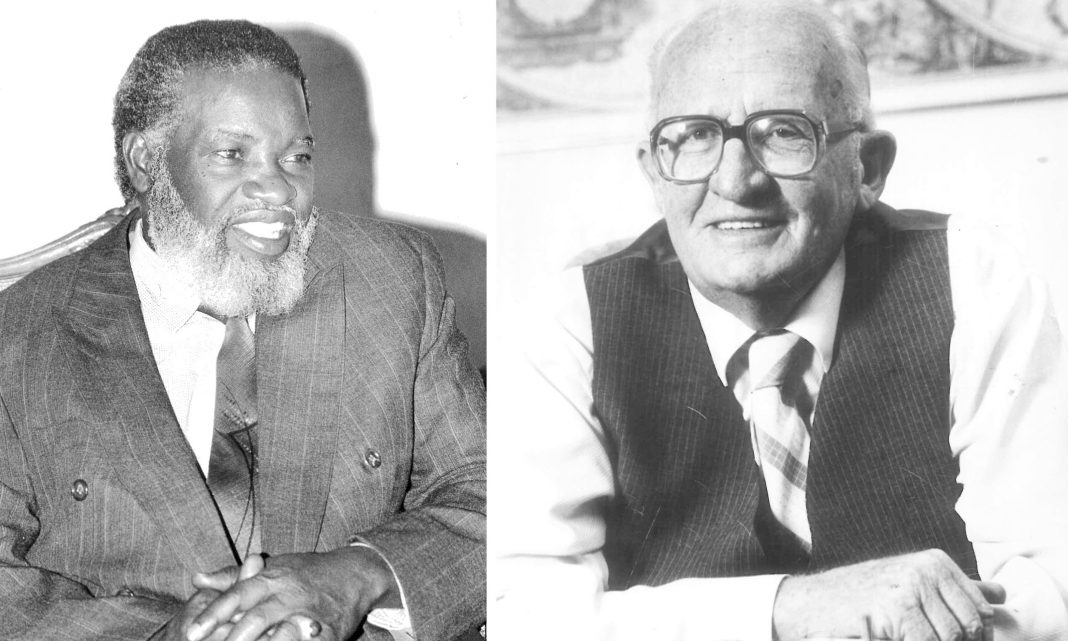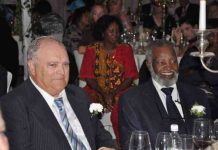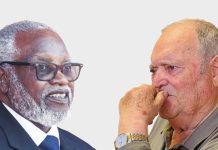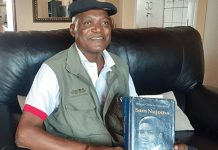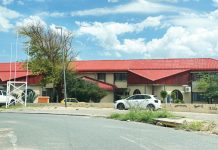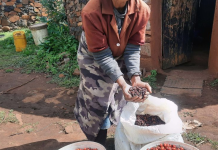By Shinovene Immanuel | 26 February 2021
WHEN one of Namibia’s wealthiest businessmen, the late Werner List, donated six of his farms to the Sam Nujoma-led government in 1998, he was lauded as a generous Namibian.
In return, he was allocated fishing quotas to subsidise one of his businesses.
The exact details and figures of the offer were, however, never made public.
Now, leaked documents, including a letter to the former president, provide insight into this transaction.
This shows how List convinced Nujoma that the government should allocate additional fishing quotas to his company Consortium Fisheries Ltd, which experienced financial trouble at the time.
“We have a problem in our organisation which I must solve,” List told Nujoma in a letter dated 6 August 1996.
“We need money to invest, but we are losing too much money in the fish business. Our quota is too small for the factory we built, and we must survive,” he wrote.
To entice the government, List offered to donate six farms to Nujoma’s government in exchange for additional fishing quotas.
To some, this was a noble gesture, which now benefits 50 landless families resettled at the farms.
But to others, this transaction was an example of how Ohlthaver & List’s proximity to power helped it survive troubling times.
O&L yesterday denied this allegation.
List has led the O&L Group for more than 50 years.
The business empire today has an annual revenue of around N$6,4 billion, and N$10 billion in assets as of 2020.
It employs 6 000 permanent and temporary workers.
List was one of Namibia’s wealthiest business people until his death in 2002 at the age of 80.
His company owns Namibia Breweries Limited, Namibia Dairies, Pick n Pay, and Broll Namibia, among other companies.
The well-known Wernhil Park shopping mall in Windhoek is named after him and his wife, Hildegard.
O&L prides itself as a proudly Namibian company, but some believe it has been protected by the government through industrial policies in several key industries.
The company now owns Hangana Seafood, a fishing company that has benefited from years of free fishing quotas.
O&L has over the years roped in politically connected business people.
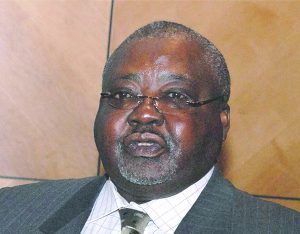
This includes Nujoma’s brother-in-law, the late Aaron Mushimba, who was one of the owners of O&L as part of the black economic empowerment scheme.
THE FARMS DONATION
The Namibian has seen the letter List wrote Nujoma on 6 August 1996.
He explained his company’s financial troubles.
“The losses during the past two years were N$20 million up to now, for which we could have built enough housing for all our people at Walvis Bay,” he wrote.
He said his company needed additional quotas to add to the 10 000 tonnes they received that year from the state.
“To make money out of the fish, we need 20 000 tonnes of raw white fish, which means a quota of 20 000,” List said.
In exchange, List proposed to donate six farms to the government by April 1997.
The farms in question are located in the Kunene region near Outjo, measuring a combined 21 100 hectares.
These are farms Nimitz, Tsumis, Dwight East, Elf, Dwight, and Michael.
He said: “The idea is to put our fish business on our stock exchange as soon as it makes a profit, so that Namibians can participate.”
List claimed that “I also want to remedy some of the wrongs the government of that time made with land”.
NUJOMA’S LOVE
A letter dated 6 October 1996 shows that Nujoma’s administration eventually gave List the additional fishing quotas. Nujoma has not hidden his love for List.
He lauded the businessman in 2004 at the May Day celebrations at Karibib, saying he was as one of the white people who had embraced the new dispensation, putting racial discrimination aside.
The former president told the crowd how List had donated his farms to illustrate that some white Namibians had abandoned their racist attitudes, while a few continued to mistreat their workers by dumping them in “corridors” of land along national roads.
“These are white Namibians whom we accept, but we don’t accept the whites of Ongombo West.
He [the owner] is a criminal and we are going to deal with him,” Nujoma said at the time.
THIEME DEFENDS O&L
O&L Group’s chairman, Sven Thieme, told The Namibian yesterday this transaction appears to be a genuine and transparent plea to the government to support a struggling 100% Namibian operation to sustain jobs.
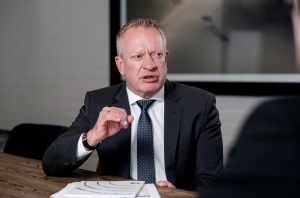
“Those who knew Mr List and his passion for Namibia and her people will know that donating the farms to government at that time was in good faith, not for personal gain . . . to sustain a 100% Namibian business, and realise his personal passion of enhancing the lives of Namibians,” Thieme said.
He said the O&L Group prides itself in having for years shared a common vision of creating a better Namibia.
“The fact that our fisheries operation has withstood various ups and downs, and today provides 1 200 Namibians and their families with a livelihood through our fisheries operation, is testimony to the value of collaboration by government and the private sector,” he said.
He said it is interesting to see that even so far back, it was necessary to secure a base load of quotas of a specific volume to run a sustainable fishing operation.
“This is still the case today, and one of the reasons why reform of the fishing quota allocation system is required,” Thieme said.
QUEEN SOFIA
Some Namibians, however, believe List donated the farms because they were not good enough.
Minister of agriculture, water and land reform Calle Schlettwein yesterday said the six farms have been combined into one.
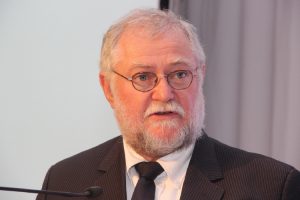
He said the government allocated it to a project called Queen Sofia.
“The project was established to accommodate formerly disadvantaged groups who were previously employed as farmworkers, demobilised ex-soldiers and other landless Namibians,” he said.
According to him, the block of farms were in 2000 advertised, and the group resettlement component was used to resettle 50 families.
He said each family has been provided with a house and garden.
Schlettwein said the Spanish government pledged funding in 1999 towards the development of the project’s activities, the construction of a school and 50 low-cost houses for the resettled families.
He said they also donated livestock to all the beneficiaries.
“A school was constructed for Grades 1 to 7, and teaches the children of the resettled families and surrounding farms, with a hostel housing 89 pupils,” the minister said.
Schlettwein said the project also has 15 boreholes and a clinic constructed by the Ministry of Health and Social Services.
‘NOT AROUND’
Nujoma’s senior special assistant, Paul Shipale, yesterday declined to comment, saying he was not around when the transaction with List was finalised.

